Tosh Berman's Blog, page 237
March 5, 2014
March 6, 2014
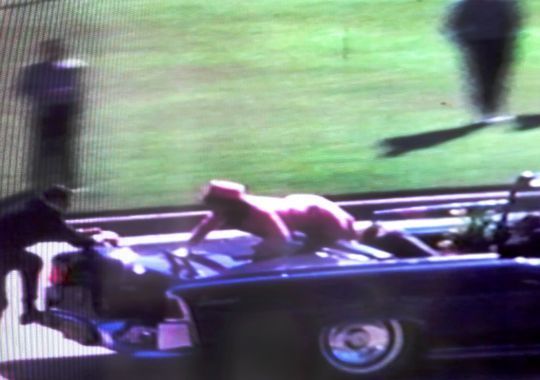
March 6, 2014
In Tokyo, there is a film and literary festival based around the Zapruder film of the assassination of John F. Kennedy will be held on November 22. The festival will include the films by William S. Burroughs that were made with Gysin, Sommerville and Balch, Francis Coppola’s “The Conversation, ” Alan J. Pakula’s “The Parallax View, ” and Bruce Conner’s “Report” among other titles. There will also be readings and conferences regarding the Zapruder film. Of course anyone who goes to this festival must be frisked, x-rayed, patted down, and turn in their library card, so one can check out what book titles were lent out and etc. The highlight of the festival will be a live re-enactment of the Kennedy shooting that will take place in Shibuya, on Meji-Dori, which is a large street in the city, but still small with respect to size and width when you compare it to Dallas. But it's not the accuracy that’s important, but the feeling behind it.
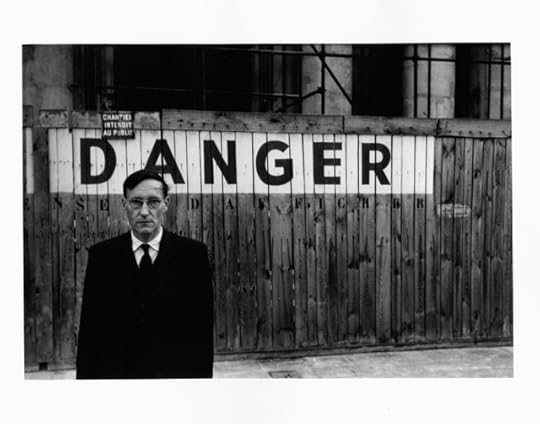 The National Noh theater will be doing their own version of the Kennedy assassination on their stage in Roppongi by slowing the whole narrative to seven hours. Viewers are allowed to move around the stage so they can position themselves to see better and also get multi-views of the incident that is probably one of the most significant and horrifying moments in my life. Also it is reported that the English band The Human League will be doing a special performance of their song “Seconds” which deals with the time-frame of the actual killing of President Kennedy. The price of ticket is ¥22,000 or for Americans who show their passport, a discount ticket for $22. For 51 years, I have been haunted by what happened that afternoon on November 22, and now I want to go to a festival to purge all the negative feelings I had since the death of our President. JG Ballard tried to do this with his great work of fiction “The Atrocity Exhibition” but there is still a need to face the tragedy head-on, in a sense we all need to get into a car and smash through all the illusions that were built up from that specific date. They’re even getting a Beatles tribute band to acknowledge the innocence and the need for entertainment during the early 1960s. There is also the theory that the Kennedy assassination started the 60s as if it was a flame near a sea of gasoline.
The National Noh theater will be doing their own version of the Kennedy assassination on their stage in Roppongi by slowing the whole narrative to seven hours. Viewers are allowed to move around the stage so they can position themselves to see better and also get multi-views of the incident that is probably one of the most significant and horrifying moments in my life. Also it is reported that the English band The Human League will be doing a special performance of their song “Seconds” which deals with the time-frame of the actual killing of President Kennedy. The price of ticket is ¥22,000 or for Americans who show their passport, a discount ticket for $22. For 51 years, I have been haunted by what happened that afternoon on November 22, and now I want to go to a festival to purge all the negative feelings I had since the death of our President. JG Ballard tried to do this with his great work of fiction “The Atrocity Exhibition” but there is still a need to face the tragedy head-on, in a sense we all need to get into a car and smash through all the illusions that were built up from that specific date. They’re even getting a Beatles tribute band to acknowledge the innocence and the need for entertainment during the early 1960s. There is also the theory that the Kennedy assassination started the 60s as if it was a flame near a sea of gasoline. 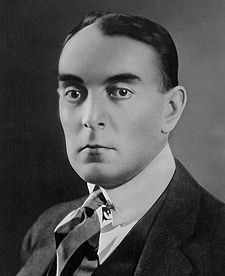
I often feel like Cyrano de Bergerac, with a big nose, but while reading Ring Lardner’s great short story collection “You Know Me Al,” I realize that the illusion is very much part of life, without it the imagination would be useless. Perhaps all of this was only a dream, and we’re sharing the same images over and over again. The Zapruder film may be the last great “American” film ever made.
Published on March 05, 2014 16:24
March 4, 2014
March 5, 2014
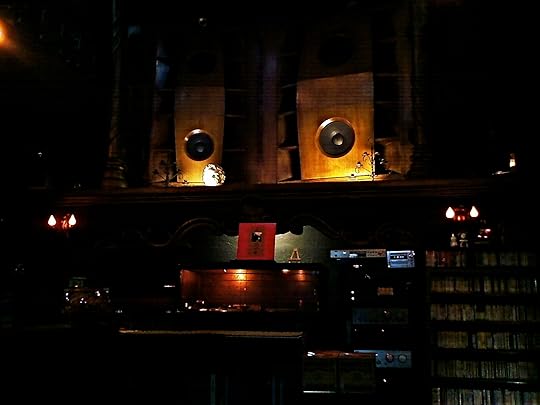
March 5, 2014
I'm at the Lion Cafe in Shibuya, which is in a perfect location, among its sexual slime of love hotels, relaxation clubs, and the water trade. Here one can avoid the outer world to lose one self into the exquisite world of recorded classical music. Volume is not so loud but loud enough to drift into a blissful state. They don't allow photos to be taken and rightfully so. How can an image penetrate the magic that is the Lion Cafe?
When you walk in one notice the mixture of Rocco and post romantic setting of the coffee shop. It was launched in 1926, and I doubt they have changed the decor over the years. All the tables and chairs are facing two massive speakers and various turntables as well as a pair of CD players. The speakers are built-in wooden cabinets in between two poles with a bust of Beethoven's face facing the coffee drinkers. Along the bust is two decorative candle holders and at its end are two electric fans. The building is old and looks very much like it was built in the 1920s.
The tables and red velvet chairs seem antiquated as well, but still in good condition. The only drawback is the smokers that come here. The smoke lingers like a needy ex-lover you just hope that they will go away.
Overall the lighting is on the dark side, but one can still have enough light to read. But the best thing to do is meditate and allow yourself to be pulled into its seductive charms. Before the waiters take out a record to play, they softly make an announcement of what they are about to play. Servers are in black and they move around the cafe like ninjas in the jungle. They take your order for coffee in a low volume voice. Talking, even when ordering drinks, is reduced to a bare minimum.
The windows facing the street are frosted, so one can only see the dim lighting of the outside world. No one outside can look in. It is just like a church but instead of worshiping Jesus or Buddha, one admires the speakers. On the middle of the woofers, it says "3D Sound System."
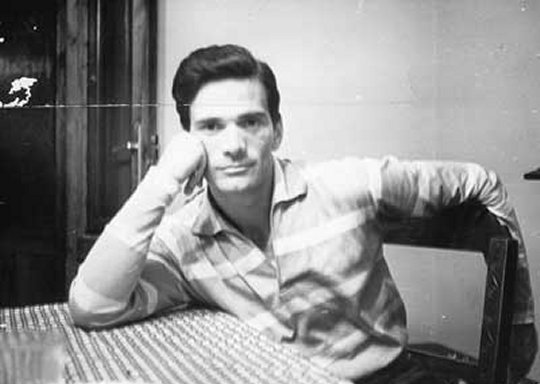
The only sound I can hear besides the music is the sound of pen on paper. Behind me is a writer looking over his manuscript. It's in Japanese of course and his writing paper is horizontal with tiny squares where he writes his kanji in. I just wonder what he's writing and even more important will he dedicate his book to the Lion Cafe.
In my notebook, that is only devoted to writings that took place a the Lion Cafe, is focused on the fantasy of the actor Dean Stockwell working with the great Italian poet and filmmaker Pier Paolo Pasolini. I imagine them working together for some reason, due to the nature of passion spent on modern times. One of my favorite novels by Pasolini is “”Ragazzi di vita, ” which can be translated to “Boys of Life” which could be read as “hustlers." I imagine Dean playing a Pasolini character as he roams around Rome to look for trade or adventure. But the way I would write it, the location would be in Tokyo, and to be more exact the same area where the Lion Cafe is located.
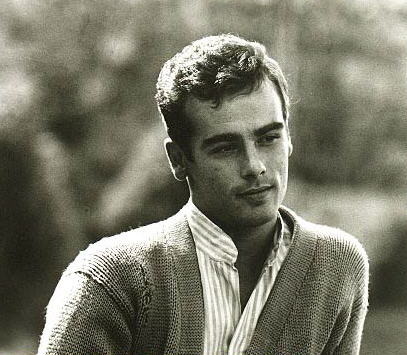
I often like to hang out in this neighborhood, because one, the girls here are cute, and two, the mixture of neon lighting for the water business as well as the nervous middle-aged men that haunt this location are an inspiration for me. Yet, while sitting here, and listening to J.S. Bach’s “The Well-Tempered Clavier Books 1 and 2, ” I find myself approaching the entrance or gateway to a depression. All of sudden the writer behind me got up from his table, and whispered in my ear, “I wrote this narrative already bud.” He then sat down, gently and in low volume, ordered another cup of coffee, and then started to work on his manuscript.
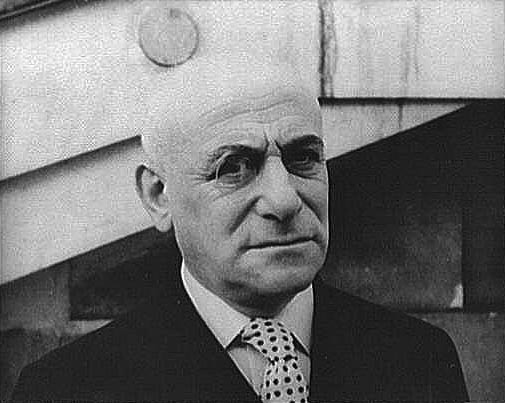
I left the cafe, with a heavy heart, and thought of Max Jacob’s great collection of poems, written sometime in the late teens, “The Dice Box” and thinking that it always picked up my spirit, but alas, being in Tokyo, it will be very difficult to find a copy here. Nevertheless I headed towards the Shibuya station to locate another setting, where I can write, think, and be something that is not me at this moment.
Published on March 04, 2014 17:19
March 3, 2014
March 4, 2014

March 4, 2014
In my heart, I felt like Nero when he was appointed title princeps iuventutis (head of the youth). But then again, I have always had a big head with respect to yours truly. As I am in Tokyo now, I ran across a friend who collects American cars, and is an enormous fan of Ed “Big Daddy” Roth, and today, he will get one of his custom-made cars. He has a garage outside of Tokyo, where he keeps his Roth collection. The most famous car that he owns is the 1961 “Beatnik Bandit” hot rod. The most unusual aspect of this car that makes it really unique, besides being one-of-a-kind is that instead of a steering wheel, it has a joy stick. How one can drive this car in excessive speed is beyond me, and when my friend offered me a ride in the grand “Beatnik Bandit, ” I was looking for an excuse to remove myself from his presence and his damn car. But my brain didn’t work fast enough. Also amazingly enough, the car had no seat belts, and I was just too polite to ask him about it. Nevertheless I got in the car with him, and like Batman leaving the Batcave, we speeded off to the two lane blacktop in Tokyo, that is more a residential street than anything else. I wish I could report what I saw, but I pretty much kept my eyes shut, because every time I opened them, it seems like we were approaching a moving object or an innocent bystander, who god forbid, was in the way of the “Beatnik Bandit.”
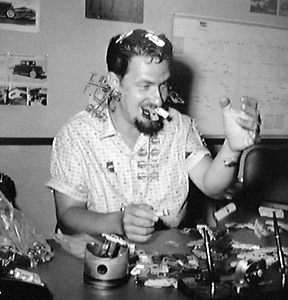
My worst nightmare is when we approached the Shibuya street crossing in front of the station, but luckily the light was green and he speeded through Center Gai, which I thought was only a pedestrian area, but my driver didn’t seem to care. We stopped in front of Tokyu Hands. I looked at him and he seemed to be a drunk John Garfield on his last hour on this planet. I told him that I had to get something in the store, and he should just go on without me. He, being very respectful, said he will wait for me. I left his car with wobbly legs and made the decision to run away. I couldn’t deal with the Pearl White experience of maybe facing death around the corner. I snuck around the building, and ran into Union Disk’s basement. There I felt safe, and not only that, but found a French EP by Barney Wilen. But as far as I know, he may be still waiting for me in Shibuya with the damn “Beatnik Bandit. ”
Published on March 03, 2014 16:38
March 2, 2014
March 3, 2014 (Tokyo)
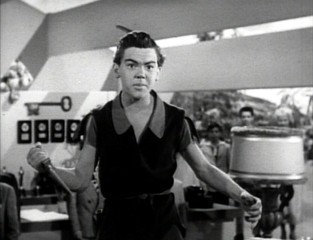
March 3, 2014
After working on my memoir project, I took a walk in the rain. Today is Bobby Driscoll’s birthday, who was a friend of my parents. I don’t have a strong memory of him, due that I was a little child when he was around the household. But his presence was felt strongly. What I hear about him is mostly from my mom, who was very fond of him. It’s funny that he was the source material for Disney’s “Peter Pan” and in a sense growing up was a huge pain for him. Not as a man, but the way the entertainment industry treats its children, who work in the film world. They always want to freeze time, yet a human can’t remain what he was, he or she can only be “is.”
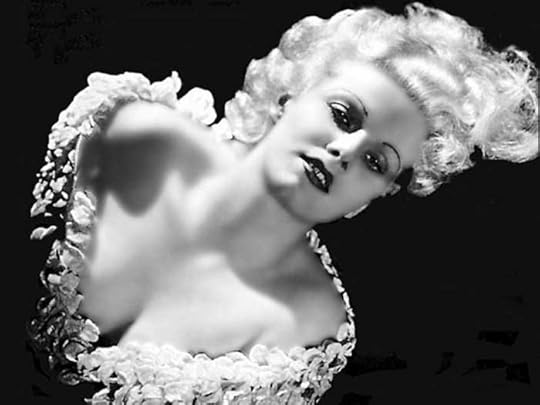
I’m consistently fighting a depressing that lurks underneath my skin, and the weather today, which is stormy, pretty much fits the mood, as if it was a tight suit on a mannequin. I react, but I can’t really express myself. The one thing that makes me feel happy is that there is a Jean Harlow retrospective at Film Forum here in Tokyo. They called her the “Blonde Bombshell” in fact that is the title of the film festival focusing on her work. Tonight they will be showing “Hell’s Angels” double-billed with “Red Dust.” Escaping into the theater to see a film, even though it's a movie I have seen over and over again, is somewhat a spiritual experience for me. It’s very much like a “Last Year at Marienbad” experience where I try to remember the film, but when I do see it again, it seems to be a totally new experience. Certain films work that way for me. It is like going into a theater is similar to walking into a thick fog where you can’t see your hand in front of your eyes, yet you know it is there. Jean Harlow comes in and out of focus in my life, but it is always behind the fog. Perhaps due that she died many years before I was born, yet, her presence (like Driscoll) still affects me even now. Seeing her work in Tokyo may seem to be a strange occurrence, but the city in how it resolves and moves is a mystery as well.
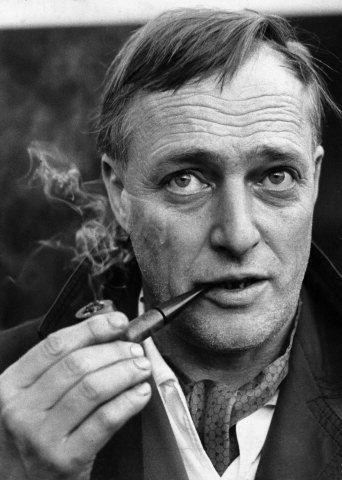
Asger Jorn, one of my faves, is an artist and writer who I come upon usually by accident. I never think of him, yet once in awhile I come upon a book by him or perhaps something on COBRA, the art movement that he was part of. Their working method was based on spontaneity, which takes the form that I devote my life to. To make plans is to presume one is going from A to B, but in my experience life throws many surprises on that road. It is preferable to be prepared for rapid changes in one’s life. So yes, I will go see the Harlow films, but I won’t even look at the schedule, I will just show up, pay my ticket, and perhaps walk right in the middle of the film.
On the way to the theater, I ran upon KFC, where one can smell the frying death that was once a chicken or a selection of chicken parts, made in the same sense as Dr. Frankenstein making his monster. I hold my nose, and faced my future without a thought in my head.
Published on March 02, 2014 17:35
March 1, 2014
March 2, 2014 (Tokyo)
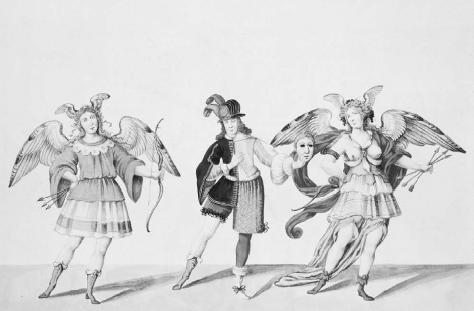
March 2, 2014 (Tokyo)
Last night I saw a performance of the ballet “The Loves of Mars and Venus” originally choreographed by John Weaver in London in 1717. Oddly enough, this is the first time that Tokyo had this ancient ballet performed in one of their newer theaters. It is thought to be the first ballet that conveyed a narrative of sorts. Although at its time, the ballet was popular, yet, the original music doesn’t exist anymore. In 1955, Rivierside Records’ Orrin Keepnews commissioned one of the artists on his label Thelonious Monk, to write an updated version of the ballet. Keepnews changed the location from London to Tokyo, and now the ballet conveys the Great Fire of Meireki, which took place in Edo (now known as Tokyo) in 1657, and it is reported that 100,000 people died from this fire. Mostly due to the structures that were made by wood and paper, and all of them were close together with very little or no space between the premises. Ironically Keepnews participated in the bombings of Japan during the latter months of World War 2. Whatever there is a connection between the bombings and the fire in Keepnews’ thoughts, are unknown to us.
Monk based some of the melodies on Kurt Weill’s music for the “The Three-Penny Opera, ” which gives it a strong European feel to the piece. As close as possible, they kept the Weaver choreography, but surely over time there must have been many changes with respect to the dancing for this ballet. Like folk music, ballet too can change from time-to-time, and in this case from century to century.
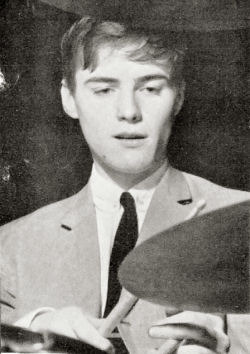
For the current production in Tokyo, they based the sets on drawings by Dr. Seuss, which gave it a whimsical touch but with some poison mixed in as well. The odd juxtaposition of the different elements in the ballet makes it a flawed, but a very interesting experience. My friend Jennifer came with me and she thought it was ‘just’ OK, but I believe it was a bit more than that. Overall I liked how Keepnews' made this giant leap into the ballet world, in fact, how can a man who started an amazing jazz label, as well as producing some of the greatest music of the 20th century got involved in such a vision. War has often led one to major disappointments, and perhaps his experience as a bomber in World War 2 somehow led him to do this ballet, and perhaps seeing or being involved in the horrors that took place in Japan at the time, sort of see this work as a positive thing to place on this planet. But then again, who knows? After the performance Jennifer and I went to Reco-Fan in Shibuya to see if I can locate some obscure recordings by The Shadows. Lately I have this need to collect recordings by Tony Meehan, who was their drummer and was a major player in the U.K. before The Beatles hit it big. I have a huge fascination with the world right before the Fab Four hit it big time. In Japan, as well. Probably the most important thing that happened for Japanese pop music is the appearance of The Ventures, who toured here in 1961. After that tour, many Japanese young men got their first electric guitar.
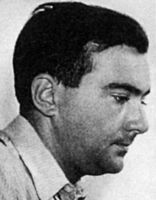
I’m always impressed how culture goes back and forth between the West and the East. Tomorrow I’m having lunch with Kiichiro who is translating a novel by David Goodis, who I believe will be the perfect fit for contemporary Japanese readers.
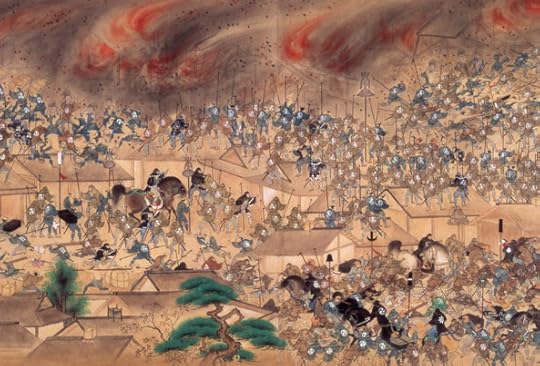
Published on March 01, 2014 17:56
February 28, 2014
March 1, 2014 (Tokyo)
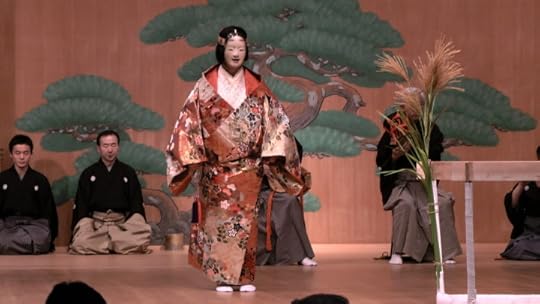
March 1, 2014
Tokyo is very much of a city that I can feel by my fingertips. If it has a logic, it is sort of beyond my understanding, because in a sense it reminds me of Paris, in that you use a location as a set piece, and then from there the roads becomes a spider’s web covering the rest of the city. Tokyo is like this as well, because nothing really connects to each other. In a way it makes me think of Los Angeles in that it is a city full of villages. Each area has its distinct identity and purpose. I tried to explain this to Justin Bieber, because I took him out for his birthday and I always want to show him a good time. But it's hard, because his standards are quite high.
He is interested in Noh and Kabuki theater, which may surprise certain people, but he bases (at least in his mind) Kabuki practices in his latest stage show. His manager talked him out of wearing a formal Kabuki wig and make-up, because he felt it may be too radical for his teenage fans. Justin has a great admiration for the theater and its practices and therefore wanted to see some Noh while he was in Tokyo.
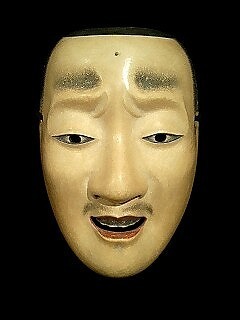
Noh was first performed in the thirteenth century, and Justin loves the thought of being involved in that tradition. He also loves the idea that a typical or traditional Noh play can last all day. His one dream is to do a performance that will start at 10: AM and end sometime in the early evening. There will be lunch breaks, but more likely he will invite the audience to bring food into the arena. The play he wishes to base his new show on is “Aoi no Ue (Lady Aoi) which is a Heian period Japanese Noh play that is inspired by the ancient Japanese novel “Tale of the Genji.” In this Noh piece, there are three characters. Prince Genji, his wife Lady Aoi, and the Prince’s mistress Lady Rokujo. The conflict of the narration is that Lady Aoi becomes pregnant with her husband’s child, which causes Lady Rokujo to be jealous and seeks revenge. Her living spirit leaves the body and possesses Lady Aoi.

Justin wants to portray Lady Aoi, and feels he can write some new songs for this theater piece slash concept album. Justin and I became tight after I was hired to write some lyrics for his music, but it didn’t turn out that great. Nevertheless he asked me to adopt “Aoi no Ue” to the modern era but using the techniques of classic Noh theater. Justin is one of those artists that has a natural instinct for what will work and I never doubt him or his talent. I’m very excited to work together on this project with him. Now that I’m in Tokyo I can fully focus on this project, and also at the same time I can celebrate Justin’s birthday and talent in one place and in one time.
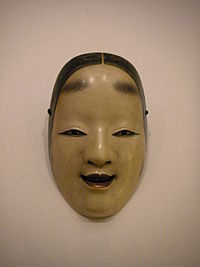
Published on February 28, 2014 15:52
February 27, 2014
February 28, 2014 (Tokyo)
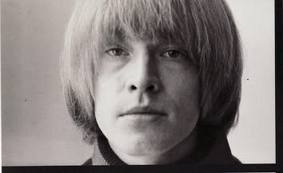
February 28, 2014 (Tokyo)
Nothing is better than having your first cup of coffee in the morning in Tokyo. The scent of the caffeine is like perfume to me. Sadly due to my declining age, it is hard for me to pick myself up from the bedding this morning, due that it's a tatami mat. I am so accustomed to having a western style bed, where you sit, and then lay yourself down. But here I can’t really figure what the sophisticated way of laying in your bed. I can’t jump onto the futon, because it is harder than a bed. So I have to get on my knees, and then gently allow my body to fall backwards. It is very awkward because I’m suffering from a bad back. So for me to get up in the morning, I have to crawl out of bed and go to the nearest wall, and pull myself up. Once up, no problem!
Today I am obsessed in finding the legendary and some even claim it doesn’t exist, the Brian Jones solo album. It was rumored that he recorded an album sometime during the “Between The Buttons” sessions. He utilized Charlie Watts and Bill Wyman as the rhythm section, but played all the other instruments, including the complete string section. Not only was Brian the best looking Rolling Stone, but obviously the most talented as well. My sources here are told that the actual Brian Jones untitled album showed up in Japan sometime in the middle of the 70s, but eventually became bootlegged in the 1980s. It never emerged in the Internet nor in the States. Getting a CDR of this album can cost one a hundred dollar bill. The only place one can go after this CDR is in Shinjuku at a record shop that only sells bootleg Stones recordings.
The store is located in what looks like a vacant building, and on the fourth floor. There is an elevator in the building that can only fit one person, and if you’re overweight, you’re out of luck pal! The shop is called “Are You Stoned?” For some years now this has been the Mecca ground zero shop for the most obscure of the obscure Stones recordings. They also sell suits that once belong in Charlie Watt’s closet. How they got it is a real mystery to me. Perhaps Charlie has his own version of the Borrowers in his home.
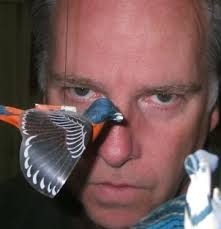
Nevertheless as I move forward on the long hallway I found another interesting store. It is called “Winnipeg” and it is totally devoted to the Canadian filmmaker and writer Guy Maddin. When you walk into this store, you come upon a giant portrait of Maddin and right below the poster size image you see a lone person behind the register, who it seems is watching a Maddin film on her small VHS video screen. Here, they sell all the Maddin films that are available on DVD, as well as actual 35mm and 16mm film prints. Maddin wrote three books, and here in the shop they have every edition possible, including the editions around the world in various languages. Oddly enough, it seems there are numerous editions of his work in Finnish.
I purchased a 35mm print of “The Heart of the World” a film Maddin made in 2000. Impossible to find, especially in 35mm, but I had to have it! Sadly when I got to “Are You Stoned?” they sold the last copy of the Brian Jones CDR, and they told me (in English) that they will not be able to get more copies. My disappointment was so great, but on the other hand I was quite happy with my Guy Maddin purchase, and I knew I must be in heaven, because the next store after “Are You Stoned?” was a shop devoted to the illustrator John Tenniel. I desperately need a print of Tenniel’s illustration from “Alice in the Wonderland.” In many ways I feel like I did fall into that same hole as Alice, here in Shinjuku.
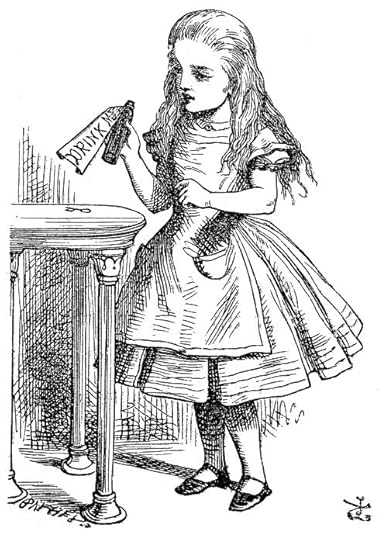
Published on February 27, 2014 16:53
February 26, 2014
February 27, 2014
February 27, 2014

February 27, 2014
I’m now in Meguro, Tokyo and having my dinner of Bud Light and sashimi. The flight over the Pacific was a nightmare, but going through the security check at LAX was even worst. I can understand the need to check what is inside baggages that we take on the plane, but is it necessary for us now to actually get on the conveyor belt that leads to the X-Ray machine. I can’t tell you how awkward it is to lie on our butts and back on this conveyor belt with your head inches away from someone’s stinking socks. Then there are these horrible series of moments when you are actually in the x-ray machine while this bright light goes over you as if you were a piece of 16mm film. Then on top of that, we have to unzip our pants because it seems that metal zippers cause concern when a x-ray machine goes over it. Afterwards there is that awkward period of time when we’re all zipping our pants up before we get into the terminals.
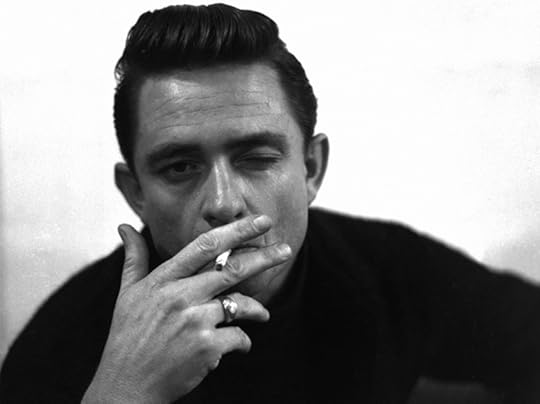
We left on February 26, and it seems that is Johnny Cash’s birthday. I don’t fully understand why Siingapore Airlines feel they need to celebrate Johnny’s birthday by only showing concert footage of Cash for its in-flight entertainment. And we’re not talking about movies, but also the in-flight music. There is no escape from Cash anywhere on that plane. Even the stewardesses were dressed like June Carter, and I have to tell you that I didn’t feel comfortable with the pilots wearing a Johnny Cash wig and a guitar strapped to his torso.
Nevertheless, now, I must put that behind me. We are here safe in Tokyo, and I must face my demons if I intend to go on to this life of wine and roses.

February 27, 2014
I’m now in Meguro, Tokyo and having my dinner of Bud Light and sashimi. The flight over the Pacific was a nightmare, but going through the security check at LAX was even worst. I can understand the need to check what is inside baggages that we take on the plane, but is it necessary for us now to actually get on the conveyor belt that leads to the X-Ray machine. I can’t tell you how awkward it is to lie on our butts and back on this conveyor belt with your head inches away from someone’s stinking socks. Then there are these horrible series of moments when you are actually in the x-ray machine while this bright light goes over you as if you were a piece of 16mm film. Then on top of that, we have to unzip our pants because it seems that metal zippers cause concern when a x-ray machine goes over it. Afterwards there is that awkward period of time when we’re all zipping our pants up before we get into the terminals.

We left on February 26, and it seems that is Johnny Cash’s birthday. I don’t fully understand why Siingapore Airlines feel they need to celebrate Johnny’s birthday by only showing concert footage of Cash for its in-flight entertainment. And we’re not talking about movies, but also the in-flight music. There is no escape from Cash anywhere on that plane. Even the stewardesses were dressed like June Carter, and I have to tell you that I didn’t feel comfortable with the pilots wearing a Johnny Cash wig and a guitar strapped to his torso.
Nevertheless, now, I must put that behind me. We are here safe in Tokyo, and I must face my demons if I intend to go on to this life of wine and roses.
Published on February 26, 2014 08:14
February 26, 2014
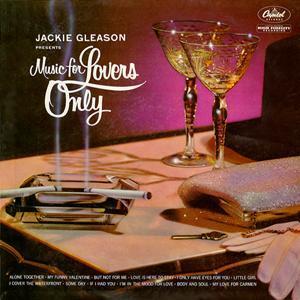
February 26, 2014
There is depression, and then there are actually moments when you are crawling on the floor and clinging to furniture as if it was a lost love adrift in a violent Pacific Ocean storm. Which in a matter of hours that is where I will be, but above the emotional pull of the airplane flying into the Rising Sun. But for now, I am on the floor crying. The one hope, and perhaps my last request is to find the rare Japanese edition of Jackie Gleason and Orchestra’s classic album “Music For Lovers Only. ”
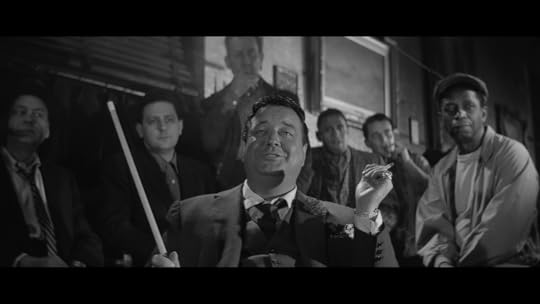
Sadly it is among the albums that were stolen from my home by The Borrowers, and now that I am fleeing from my life here in Los Angeles, the only piece of music I crave is Gleason’s genius use of “mood music.” Which sadly went out of fashion in the 1980’s and 1990’s when country radio stations started to take over the mood music programming. For a short transitory period of time, when I needed to relax I could just put on my favorite radio station KNCT-FM, and gently float to the sounds of Gleason. But one day, instead of beauty, I was surprised by the sound of Johnny Cash. Don’t get me wrong I like cash in the pocket, but not always in my ears, especially when I get in one of my moods.
I’m also a nervous flyer, and the fact that I only listen to vinyl, is a huge problem for me on the plane. Nevertheless I have heard from numerous hardcore vinyl collectors in Tokyo that there are two or three Japanese editions of “Music For Lovers Only” floating around various record shops in Shinjuku. My main mission once I land in Narita is to locate this vinyl before someone else snaps it up. The crisis of living has not previously been more intense in my life.
Published on February 26, 2014 07:42



